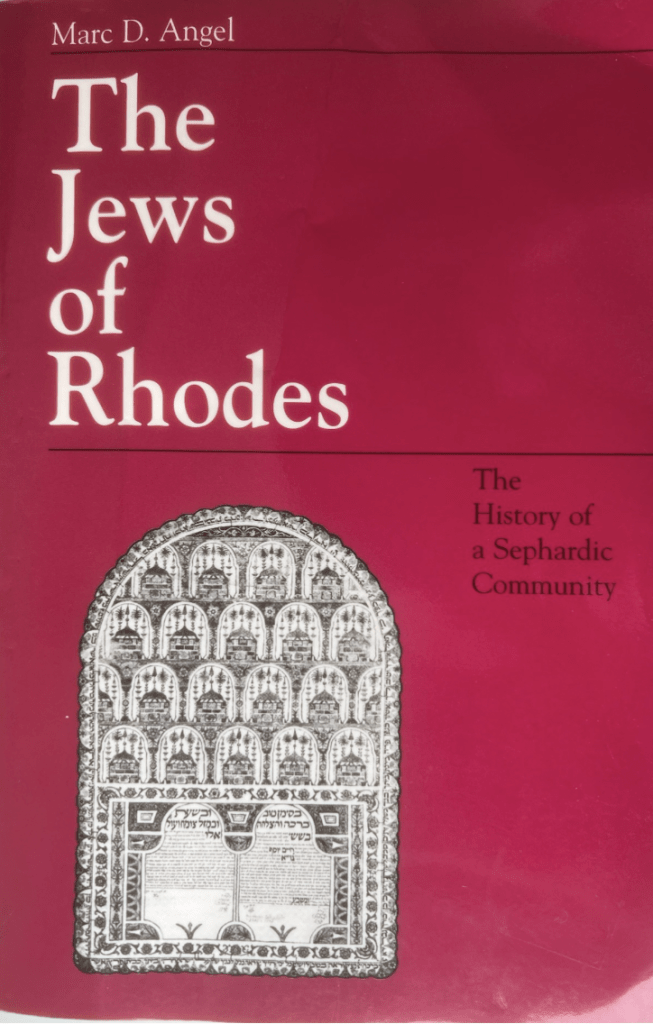The Sephardic Community of Rhodes was established in 1523 by victims and children of victims of the expulsion of Jews from Spain. It was destroyed by the Nazis in 1944. Although relatively small, the Rhodian Jewish community was important far out of proportion to its size, due to the considerable influence of its rabbis and scholars.
This is a comprehensive study of the Rhodian Jewish community, tracing not only its history but also its economic and cultural life, customs and traditions, its rabbis and scholars, its folklore and literature.
Although unique in many respects, the Sephardic community of Rhodes may be viewed as a microcosm of Sephardic life throughout the Ottoman Empire, and thus this study provides a basis for understanding the history and culture of the Judeo-Spanish-speaking Sephardim in general.
Dr. Angel, Rabbi of the historic Congregation Shearith Israel, the Spanish and Portuguese Synagogue of New York City, past-President of the Rabbinical Council of America and the Rabbinical Alumni of Yeshiva University, has set out to search for his own family background in Rhodes. Through painstaking research and thorough perusal of both printed and sources and archival material he has succeeded not only finding his own roots but also creating a model of local historiography which will, hopefully, serve as an inspiration to others in the Sephardic world similarly to commemorate their own ancestral communities.
With maps, photos, facsimiles.
Their descendants thrived under the benevolent rule of the Ottoman Empire which enabled them to develop into a self-contained community with a distinct way of life within the larger Ladino-speaking Sephardi culture that flourished in the lands of the Mediterranean. Rhodes came under Italian domination in 1912.
I REMEMBER RHODES... is Mrs. Levy's recollection of life in the home town of her youth. Although now in her seventies, she vividly recalls the people of her youth and their way of life, their weekdays and their holidays, their joys and their sorrows. She faithfully describes the town and its synagogues, the schools and the shops; the rabbis, the teachers and the ordinary folks.
A special chapter is devoted to home remedies and superstitions; another is a veritable treasure-house of proverbs and expressions in their original Ladino along with English translations. A gathering of Ladino folk songs, again with English translations, concludes this evocative memoir.
Aficionados of Ladino, the Judeo-Spanish vernacular of the "Rhodeslies" —as the Jews of Rhodian extraction refer to themselves—will be delighted by the last section of the book, Mrs. Levy's original memoirs as she wrote them in her own Ladino mother tongue.
In the author's own words, her purpose was "to weave a beautiful tapestry of our customs, life style and intense community life which were so unique on this land." I REMEMBER RHODES... is further enhanced by a portfolio of 20 rare photos depicting Jewish life as it was lived in Rhodes before its tragic destruction in the Holocaust.
